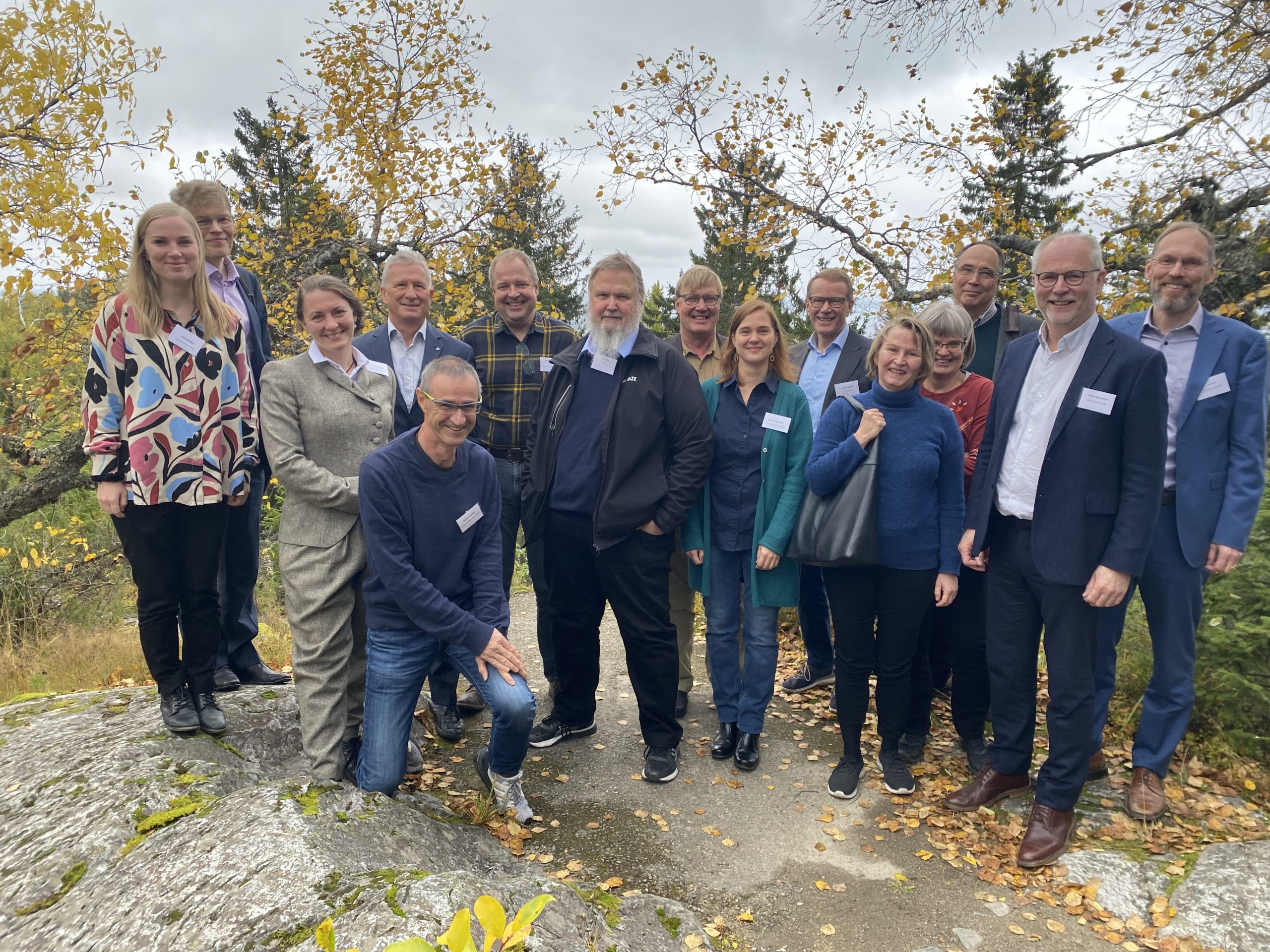Europe’s cities, regions, industries and natural resources are facing significant changes. Preparations for the future, routed in a systemic circular bioeconomy, should start now. This calls for a holistic system of sustainable change, which includes long-sighted and sustainable land use for today’s future, sustainable choices of discerning citizens, with business and research mainstreaming innovation and rethinking of services with society at its center. In this transition towards a systemic circular bioeconomy, forests and society play a major role.
This was one of the conclusions of the joint seminar of the Future Forest 2040 research project and Koli Forum Round Table, held in Koli National Park on September 28-29. During the first day, a group of experts and actors from natural resource, predominantly forest-wood sector and related industries, research, policy, cities and regions, and business discussed the structural changes in the forest sector as well as market and employment prospects of the bioeconomy. During the second day, Koli Forum Round Table participants continued by discussing sustainable bioeconomy transitions in relation to markets, innovations, materials, and regions.
From EU to Finnish policies
Harald Mauser, EFI’s Brussels Liaison Officer, pointed out that the EU Forest Policy Environment has become a complex puzzle of sectoral policies as have the drivers of the development of the EU forest resources. But he also sees that there is open dialogue between the actors. Anne Vehviläinen, Senior ministerial adviser (bioeconomy) at the Finnish Ministry of Agriculture and Forestry presented Finland’s Bioeconomy Strategy 2022. She reminded the participants that the strategy needs connections to other government strategies, and that their role in securing the sustainability of the bioeconomy and the buy-in of all relevant actors across society has been taken into account as premises.
Future Forest 2040 scenarios and analysis
After the scene was set by Mauser and Vehviläinen, it was time for some of the main results of the Future Forest 2040 project. Janni Kunttu, EFI, emphasized that the three scenarios created in 2019 are those of the stakeholders, and represent possible future pathways – they are not predictions created by researchers. The scenarios paint three different realities (“Biodiversity & regulated economy”; “Circular Economy: A way to sustain abundant lifestyle?”; and “Era of Social Connection”), depending on the main driving force and societal values of each: unlimited consumption, dystrophic polarisation, and content society. All scenarios assumed growing resource scarcity as a result of climate change, as well as over-consumption and increasing inequality problems globally. Thus, European-level policies focused on the circular economy and resource-use restrictions.
Kunttu says the research team was at first surprised of the negativity of the scenarios, but now, three years later, the scenarios have unfortunately been proven to be realistic. This is the essence of scenario work, to think of the unpredictable and unknown alternatives as well as the more obvious ones, she concluded.
Jussi Lintunen from Etla agreed with Kunttu that the past few years have been full of surprises. Etla’s team provided the forward-looking analysis, which is based on a projection up to 2026. Lintunen pointed out that demand shocks such as the war in Ukraine or Covid-19 affect short term forecasts, which therefore need to be revised, but also supply shocks, such as strikes, induce a need to revise forecasts.
Koli Forum Round Table brought members together
In the evening as well as the following day, the Koli Forum Round Table brought together the members and invited speakers to discuss topics that will be used to create the programme for the 2023 Koli Forum seminar, which will focus on bioeconomy markets and systemic transitions.
During the first Round Table session, titled “Materials matter”, resource use, value added wood products, and synergies between circular economy and bioeconomy were discussed. Helmut Spiehs, Binderholz, presented forward-looking insights from the sawmill and solid wood processing industry of today, which includes no-loss approaches for both raw materials and energy through partnerships, cooperations and integrated systems. Ali Harlin, VTT, discussed disconnecting growth from material consumption and stated that Finland is the forerunner in sustainable and knowledge-based textile industry, creating the potential for a significant amount of investment and new jobs in Europe by 2035.
The second topic under discussion was “Market transitions” with sustainable business examples and market approaches as Riikka Joukio, Kesko and Janne Näräkkä, FSC Board shared their experiences and initiatives from a wholesale and certification viewpoints. In the open discussion, it was noted that consumers are currently somewhat confused with the many layers and forms of regulations and certification and need simple guidelines and explanations. Virtual apps may be of use here.
The discussion then moved on to “Who and what is driving innovation” with the presentations of Markus Norström, RISE and Martin Greimel, BOKU. It was noted that the true nature of innovation remains a mystery so defining it in especially in the context of the bioeconomy is difficult. However, the speakers and the participants agreed that the the greatest innovation achieved by nature is the tree and photosynthesis. So improving upon this concept is difficult and inspiration should be taken from nature in terms of “no loss” and circularity. In addition, the balance of shorter term needs and longer term solutions in innovation is of crucial importance.
The final topic was regional transitions and good examples of it were presented by Jarkko Määttänen, Mayor of the City of Lieksa, Finland and Jyrki Saarinen, Institute of Photonics, University of Eastern Finland. They both noted that attracting foreign experts to remote areas such as the North Karelia region is not a problem as such but keeping them in the region needs active work by the regional and local authorities and businesses. Also in more remote and smaller locations, like Lieksa, it is easier to get investments in tourism, especially with the increasing demand for nature based tourism, than in e.g. development of new products. As an example of innovative solutions, Lieksa has launched integrative business park solutions where local companies feed their excess heat and energy into the city distribution system, with plans to develop a biogas plant based on industrial side products.
The Koli Forum Round Table 2022 concluded that sustainable innovations are crucial in just and sustainable bioeconomy transitions. Support and investments are required to promote these innovations. Just bioeconomy transitions call for a holistic approach, which take into account region-specific features, balancing business, regulations and other aspects successfully, and engaging stakeholders widely.
The lively discussion on these topics will continue in September-October 2023, when the eighth international Koli Forum seminar will be held in Koli National Park, Lieksa. Stay tuned!
Some of the presentations from the Round Table are available here.
There is also a recording of the joint seminar available here.

